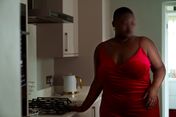I only realised how much sex work and queerness have in common when I joined the industry. I had heard the term “gay for pay” before, but in my circles, it seemed like most people who engaged in sex work were actually “straight for pay.” So many of my sex worker friends are bisexual or pansexual, and it was a joy for me to find out that so many of us were not straight.
When I talk about sex work with my civilian friends, I realise that they too have no clue that a significant majority of sex workers are queer. Their surprise now surprises me, as over the years I have come to realise that it actually makes a lot of sense.
Being queer means existing outside of societal norms. From our bodies to our relationships and our families, we do not fit into the models we are taught to see as normal. As such, I believe we are drawn to other people who are also relegated to the margins. I strongly believe that experiencing marginalisation, however that may be, can foster a special affinity, solidarity, and empathy with other marginalised peoples.
I had heard the term “gay for pay” before, but in my circles, it seemed like most people who engaged in sex work were actually “straight for pay.”
My friends and clients know that I am bisexual; I was already out when I entered the industry. Some of us, like myself, enter the industry already identifying as queer, while others may discover their queerness through sex work. Our profession often involves interacting sexually with people of the same gender, and some of us also exclusively work with same-gender clients.
I often wonder about this connection. It’s almost a chicken-and-egg situation: is sex work revealing my queerness, or did being queer lead me to sex work? Is there no direct cause-and-effect relationship at all? While I don’t have a definitive answer, it's clear that for me, the two influence and affect each other significantly.
I’ve found that being openly queer in my advertising has allowed clients of all genders to feel safe and comfortable exploring their potential queerness through fantasy and curiosity. It also seems to allow them to ask genuine questions, therefore broadening their understanding of queerness and becoming better allies. I realise it’s a privilege to be out at work, and I want to use that privilege to have these conversations with curious clients and to share my experiences.
To me, being queer is more about how I interact with people and the world at large than who I have sex with. It shapes my political views, how I treat my body, and how I perceive others. My clients often appreciate my body hair, and they are curious about my choice to stop removing it. While body hair doesn’t determine one’s queerness, my decision is closely linked to my queerness and how my view of my body has evolved. When clients mention they aren’t used to women with body hair, I often respond that I am, thanks to the many queer friends and acquaintances I have. It also means that I treat all bodies I interact with, sexually or not, as beautiful and deserving of care. My body is far from normative, and reaching a place where I can love and treat it with kindness has been a long journey – one I am still on. Both my queerness and my sex work are central to this journey.
I’ve found that being openly queer in my advertising has allowed clients of all genders to feel safe and comfortable exploring their potential queerness
In queer spaces, despite the fact that many of us have engaged in sex work at some point, sex workers are sometimes still excluded or sidelined. A similar situation exists within the kink and BDSM communities, who also overlap and intersect with the queer community. There is often a divide between us and civilians in these communities, who may try to distance themselves from us because there is what’s considered good and acceptable sex, and then there’s what we do (get paid for it).
I’d argue that queer sex workers are not only central to the queer, kink, and BDSM communities, but that we should be at the forefront of them. Many aspects of these cultures, from the slang to the aesthetics, originate from sex worker culture, particularly from Black trans sex workers who paved the way for our communities to gather and celebrate as openly as we do. We must also remember that the fight is not over.
I love the many intersections between sex work and queerness, and what I love even more is that in every queer, kink, or BDSM space I’m in, there’s always someone who asks: “Yes, but what about sex workers?”
Are you a sex worker with a story, opinion, news, or tips to share? We'd love to hear from you!
We started the tryst.link sex worker blog to help amplify those who aren't handed the mic and bring attention to the issues ya'll care about the most. Got a tale to tell? 👇☂️✨





